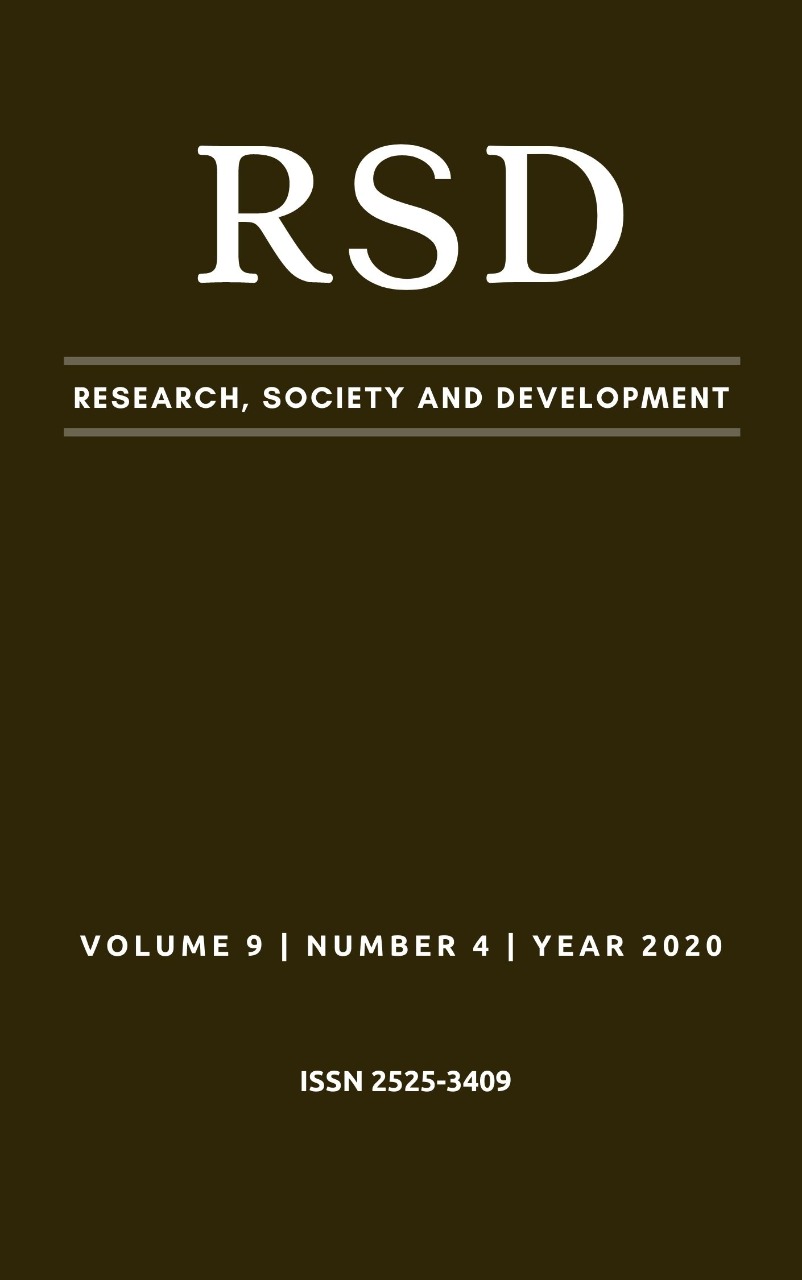Gestão escolar democrática: dimensão diretiva aos processos educacionais significativos
DOI:
https://doi.org/10.33448/rsd-v9i4.2985Palavras-chave:
Gestão escolar democrática, Processos educativos, Construção coletiva.Resumo
O presente artigo disserta sobre a importância de ações significativas e colaborativas para o avanço dos processos educativos no ambiente escolar, no contexto da gestão escolar democrática. O objetivo deste estudo é refletir sobre a importância da gestão escolar democrática como ponto de partida para que as ideias de planejamento, organização e envolvimento de atores sociais fortaleça a busca por transformações propositivas e positivas na qualidade do ensinar-aprender. Como metodologia utilizou-se a pesquisa bibliográfica para a análise dessa temática tomando como referência a abordagem qualitativa que promove breves considerações acerca da relevância da gestão escolar no campo educacional, bem como sobre a importância da construção coletiva democrática das decisões da organização escola. Desse modo, os instrumentos foram livros, artigos periódicos e leis para esta pesquisa de cunho qualitativo. Os resultados evidenciam que repensar as práticas educativas, o planejamento, a organização e o envolvimento de atores sociais numa elaboração conjunta, fomenta mecanismos favorecedores de melhorias na formação educativa de qualidade e lhes dá sentido. Conclui-se que a pesquisa permitiu a percepção de que a gestão escolar democrática escolar é um ponto fulcral na formação da educação para a democracia, sob um aspecto solidário e integrador.
Referências
Boschetti, Vania Regina; Mota, Assislene Barros da; Abreu, Dayse Lúcide de Freitas. (2016). Gestão escolar democrática: desafios e perspectivas. Revista de gestão e avaliação educacional, 5(10), jul./dez. 103-111. Disponível em http://dx.doi.org/10.5902/2318133822257. Acesso em: 22 abr.2019.
Brasil. Constituição (1998). Lei de Diretrizes e Bases da Educação Nacional, n. 9.394, de 20 de dezembro de 1996. Disponível em< http://www.mec.gov.br>. Acesso em: 25 mai.2019.
Cortella, Mario Sergio. (2014a). Educação, escola e docência: novos tempos, novas atitudes. São Paulo: Cortez.
Cortella, Mario Sergio. (2014b). Pensatas pedagógicas: nós e a escola: agonias e alegrias. Petrópolis: Vozes.
Dourado, Luiz Fernandes. (2007). Políticas e gestão da educação básica no Brasil: limites e perspectivas. Revista Educação & Sociedade, 28(100), 921-946.Disponível em http://dx.doi.org/10.1590/S0101-73302007000300014. Acesso em: 22 abr.2019.
Escott, Clarice Monteiro. (2015). A participação como indicador de inclusão social na educação superior. Revista de Educação do COGEIME, 24(46), 15-27.
Flick, Uwe. (2013). Introdução à metodologia de pesquisa: um guia para iniciantes. Tradução de Magda Lopes. Porto Alegre: Penso.
Freire, Paulo. (2015). Extensão ou comunicação? Tradução de Rosiska Darcy de Oliveira.17. ed. São Paulo: Paz e Terra.
Kimura, Shoko. (2008). Geografia no Ensino Básico: questões e propostas. São Paulo: Contexto.
Libâneo, José Carlos. (2007). Concepções e práticas de organização e gestão da escola: considerações introdutórias para um exame crítico da discussão atual no Brasil. Revista Española de Educación Comparada, 13,155-191.
Libâneo, José Carlos. (2008). Organização e gestão da escola: teoria e prática. Goiânia: MF Livros.
Libâneo, José Carlos. (2013). Didática. São Paulo: Cortez.
Linhares, Célia (Org.). (2001). Os professores e a reinvenção da escola: Brasil e Espanha. São Paulo: Cortez.
Lück, Heloísa. (2009). Dimensões de gestão escolar e suas competências. Curitiba: Editora Positivo.
Mantoan, Maria Teresa Eglér. (2003). Inclusão escolar: O que é? Por quê? Como fazer? São Paulo: Moderna.
Marques, Luciana Rosa. (2006). Caminhos da democracia nas políticas de descentralização da gestão escolar. Ensaio: avaliação em políticas públicas em educação,14(53), 507-526.
Salvador, César Cool. Psicologia do ensino. (2000). Tradução de Cristina Maria de Oliveira. Porto Alegre: Artes Médicas Sul.
Santomé, Jurjo Torres. O professorado em época de neoliberalismo: dimensões sociopolíticas de seu trabalho.In: Linhares, Célia (Org.).(2001).Os professores e a reinvenção da escola: Brasil e Espanha. São Paulo: Cortez.
Stainback, S.; Stainback, W. (1999). Inclusão: um guia para educadores. Porto Alegre: Artmed.
Downloads
Publicado
Edição
Seção
Licença
Autores que publicam nesta revista concordam com os seguintes termos:
1) Autores mantém os direitos autorais e concedem à revista o direito de primeira publicação, com o trabalho simultaneamente licenciado sob a Licença Creative Commons Attribution que permite o compartilhamento do trabalho com reconhecimento da autoria e publicação inicial nesta revista.
2) Autores têm autorização para assumir contratos adicionais separadamente, para distribuição não-exclusiva da versão do trabalho publicada nesta revista (ex.: publicar em repositório institucional ou como capítulo de livro), com reconhecimento de autoria e publicação inicial nesta revista.
3) Autores têm permissão e são estimulados a publicar e distribuir seu trabalho online (ex.: em repositórios institucionais ou na sua página pessoal) a qualquer ponto antes ou durante o processo editorial, já que isso pode gerar alterações produtivas, bem como aumentar o impacto e a citação do trabalho publicado.


